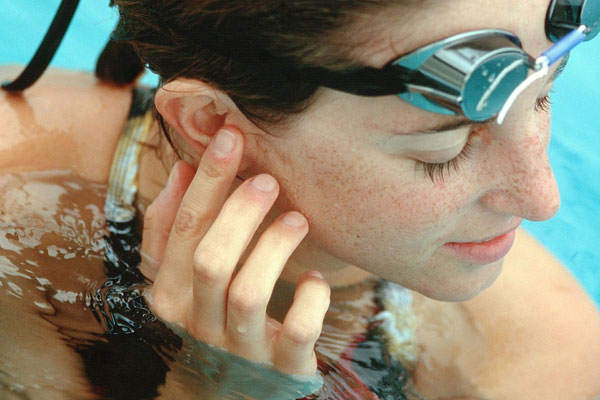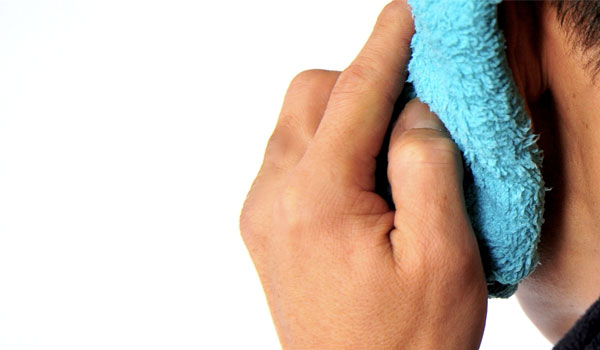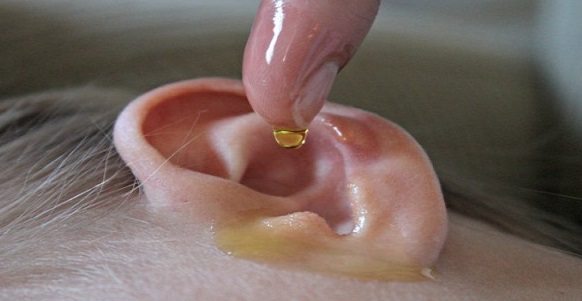Summer is here and the best way to beat the heat and keep you cool is a quick dip in the pool or a trip to the beach. Swimming is an excellent workout and is extremely relaxing. While you swim without proper protection and your head goes under water, there are chances that the moisture and water can enter your ears. Sometimes this water gets trapped inside the ear canal and there are chances of developing swimmer's ear. To prevent it, there're several things that you need to bear in mind.
How to Prevent Swimmer's Ear
1. Avoid Irritating Your Ear
Many of us are guilty of poking into our ear canals with cotton buds and other objects. This is not a healthy habit and doctors advise to avoid it at all costs. This can irritate the lining of the ear canal making it more susceptible to various infections. The best thing is to clean the outer ear with a soft washcloth and never insert any sharp thing inside the ear.
2. Make Sure to Swim in Clean Water Only
To avoid any nasty ear infections, try your best to swim in clean water. Swimming in water with high bacteria count can lead to many infections. It is not necessary that clean looking water has low bacteria count too, sometimes the water looks clear but harbors many germs. Always make sure to check that the water quality is ok and avoid whenever in doubt.
3. Dry and Clean Your Ears after Swimming
After swimming, tilt your head sideways so the water can be drained. Do take a shower afterwards and clean your ears. You can either use clean towel or a hairdryer lowest temperature setting to thoroughly dry your ears. This decreases the chances of getting any infection. Some doctors do recommend rubbing a little alcohol to dry the ears but do not overdo it. Excessive application of alcohol on the delicate skin of ears can cause chapping which can lead to infection.
4. Take Care of the Ear Skin
The skin in ear canal is very delicate and to prevent any kind of infections it is necessary to maintain its integrity. If it is damaged, dry or cracked, it is more likely to catch infections. Skin conditions like eczema and dermatitis can affect this area as well and if you suffer from these, there are more chances of developing swimmer's ear. If you are worried and want to know how to prevent swimmer's ear, the best thing to do is to take care of the skin lining the ear canal.
5. Pay Attention to Your Ear Wax
The right amount of ear wax is necessary to protect the inner ear from any infections. It repels water and does not allow it to stay in the ear canal. Too much ear wax can lead to ear blockage but never try to get rid of it on your own. The best thing is to see an expert and get professional advice.
6. Some More Tips
- Be careful when using hair products such as hair dye or hair spray. These contain a lot of chemicals and can irritate the skin and can cause allergic reactions and infection. To prevent these going into the ears, you can use cotton balls as ear plugs while applying them.
- Lakes and streams look very tempting but it is best to avoid swimming in them. If you do get a plunge, rinse and clean your ears thoroughly afterwards.
- People who use hearing aids need to be extra careful because this can push the ear wax deeper. Try to take them out frequently so the skin can breathe and the ear canal remains dry.
- If you think you have excessive ear wax or have any kind of skin disease, consult an ENT specialist. They can give you best advice regarding how to prevent swimmer's ear and how to keep your ears problem free.
How do You Know If You Have Swimmer's Ear?
 The symptoms of swimmer's ear depend upon the severity, here are a few of them:
The symptoms of swimmer's ear depend upon the severity, here are a few of them:
Mild Symptoms
- Mild redness of the skin
- Itching (mild)
- Some clear discharge
- Discomfort on touching or pulling the ear
Moderate Symptoms
- A lot of redness
- Increased pain
- Severe itching
- Excessive discharge which can be watery or thick (pus) depending upon the severity of condition
- Hearing can be affected
- The inside of the ear can feel full due to the blockage of ear canal
Serious Symptoms
- Unbearable pain which can be confined to the ear or can spread to the jaw, face, head and neck
- Completely blocked ear canal
- Fever
- Redness and swelling spreading to outer ear
- Swollen lymph nodes in neck
Ways to Help If You Have Swimmer's Ear
Well, the thing is, even with all the ways on how to prevent swimmer's ear, some may still get it. If that is the case, try the following to manage the symptoms:
1. Application of Warm and Dry Compress
 Applying a warm and dry compress can ease the pain and is very helpful to control the symptoms. You can make a warm compress by heating a washcloth in microwave oven, put it in a sealed plastic bag and test the temperature before putting it on the ear to avoid burning. Be careful if you are applying it to a child.
Applying a warm and dry compress can ease the pain and is very helpful to control the symptoms. You can make a warm compress by heating a washcloth in microwave oven, put it in a sealed plastic bag and test the temperature before putting it on the ear to avoid burning. Be careful if you are applying it to a child.
2. The Mixture of Rubbing Alcohol and Vinegar
 Mix some white vinegar and 70% rubbing alcohol in equal quantities and warm it a little. It should be at the same temperature as your body. Squirt it inside your ear with the help of a syringe or bulb and let the fluid trickle out. Be very careful if you do this and do not attempt it if you have diabetes or signs of severe infection.
Mix some white vinegar and 70% rubbing alcohol in equal quantities and warm it a little. It should be at the same temperature as your body. Squirt it inside your ear with the help of a syringe or bulb and let the fluid trickle out. Be very careful if you do this and do not attempt it if you have diabetes or signs of severe infection.
You can use this mixture as ear drops. Be cautious and do not put a lot in your ear. Alcohol will make your ear canal dry and vinegar is an antiseptic.
3. Contact a Professional
 Contact a doctor immediately if you have diabetes or any other underlying medical condition. Urgent medical attention is also required if there is a lot of redness, swelling, discharge or fever. Dizziness, loss of hearing, weakness of face muscles are also warning signs and need immediate evaluation by a professional.
Contact a doctor immediately if you have diabetes or any other underlying medical condition. Urgent medical attention is also required if there is a lot of redness, swelling, discharge or fever. Dizziness, loss of hearing, weakness of face muscles are also warning signs and need immediate evaluation by a professional.
The treatment of severe infection is antibiotics which are usually prescribed in the form of ear drops. Sometimes oral or injectable antibiotics are necessary. People who are immunocompromised, have perforated ear drum, diabetes or any other severe medical illness need extra care. Surgery is recommended in very severe cases to drain the pus and/or clean the ear canal.
